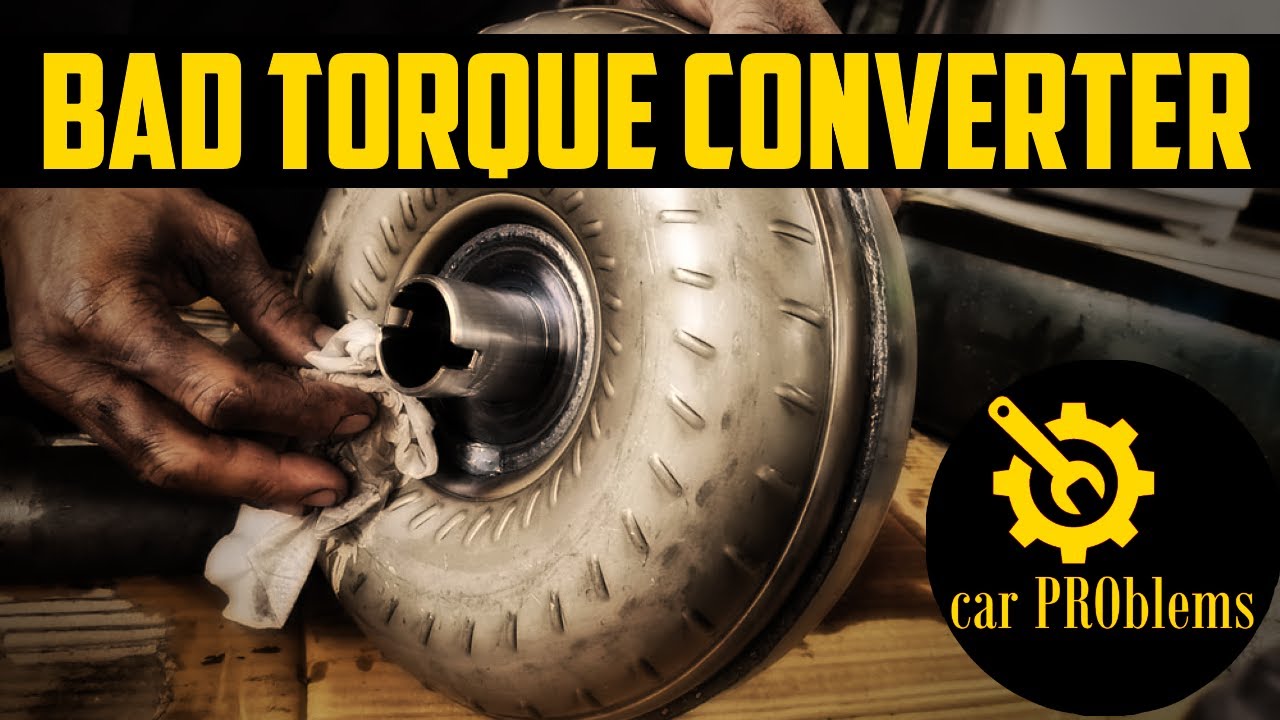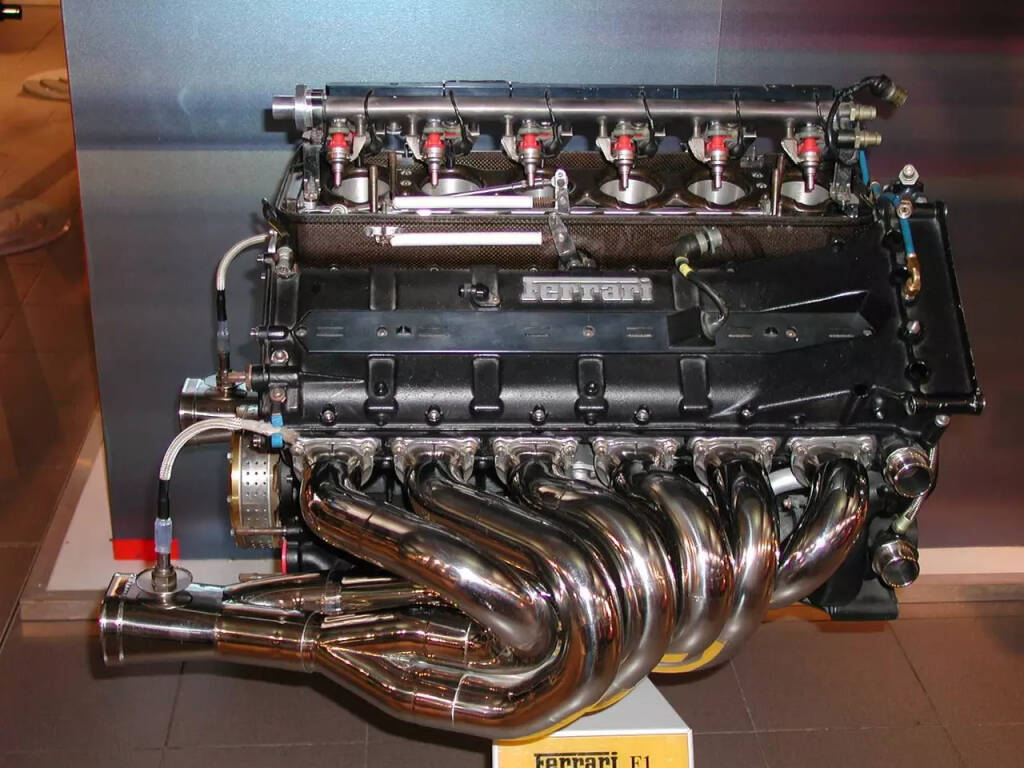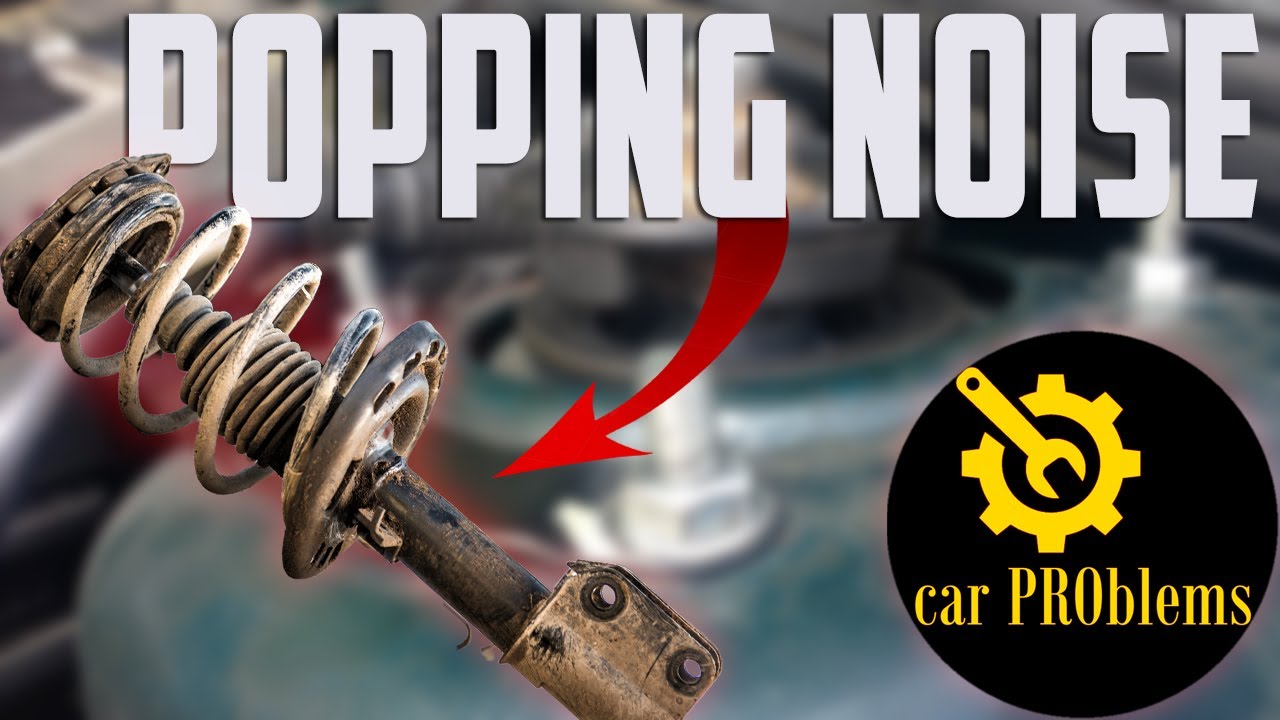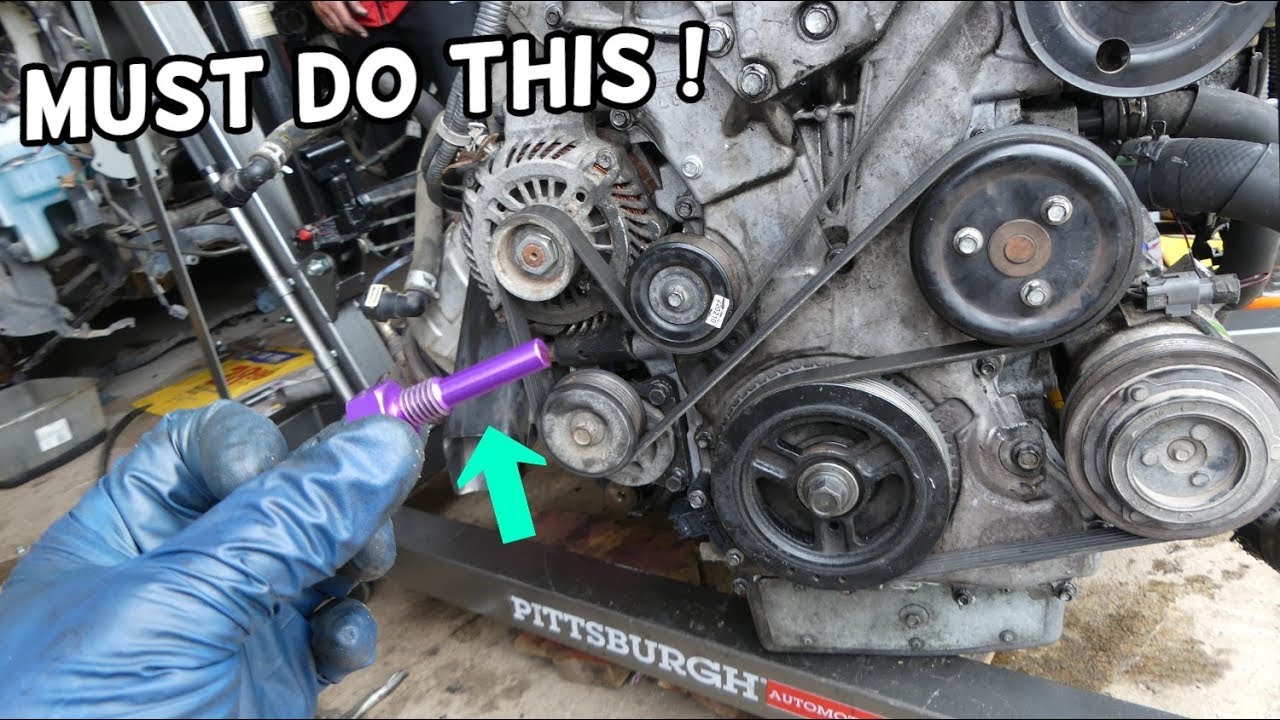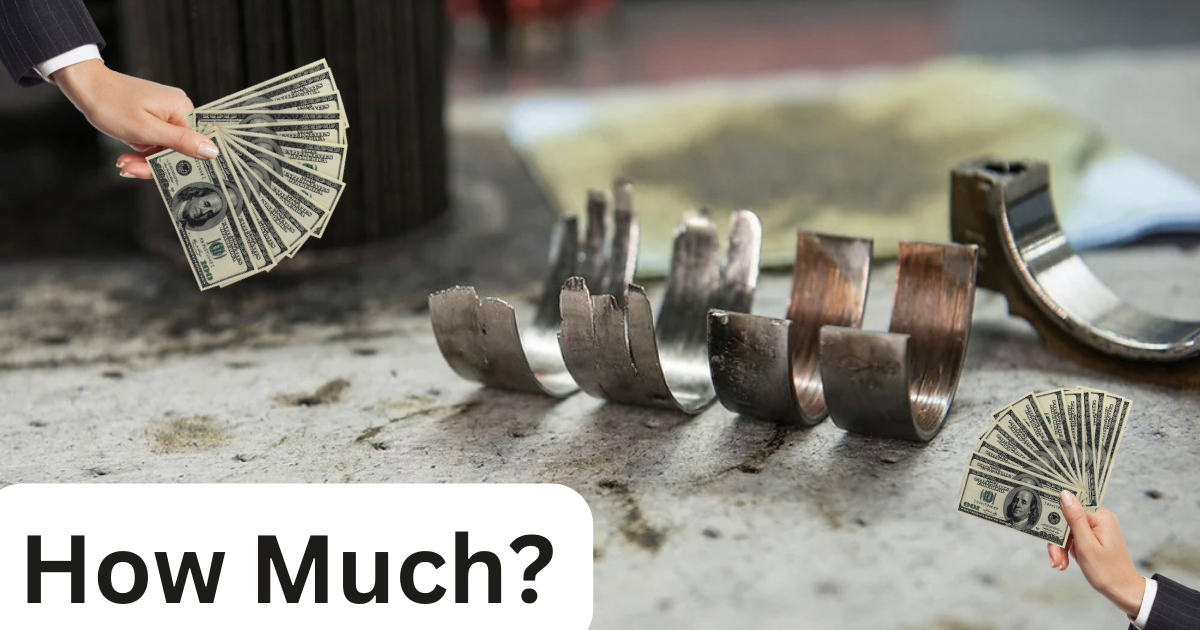Is your ride less than silky? It might not be your transmission’s fault. Discover the unsung hero under the hood—the torque converter—and how fixing it can save you money and restore that smooth drive.
The typical price range for a torque converter replacement varies from $150 to $500 if you decide to tackle the repair yourself. However, if you opt to take your vehicle to a specialized transmission shop, you can expect to shell out anywhere from $600 to $1000 to cover the repair costs. By addressing the torque converter directly, you might just spare yourself a hefty bill and get your car back on the road without breaking the bank.
What is a Torque Converter?
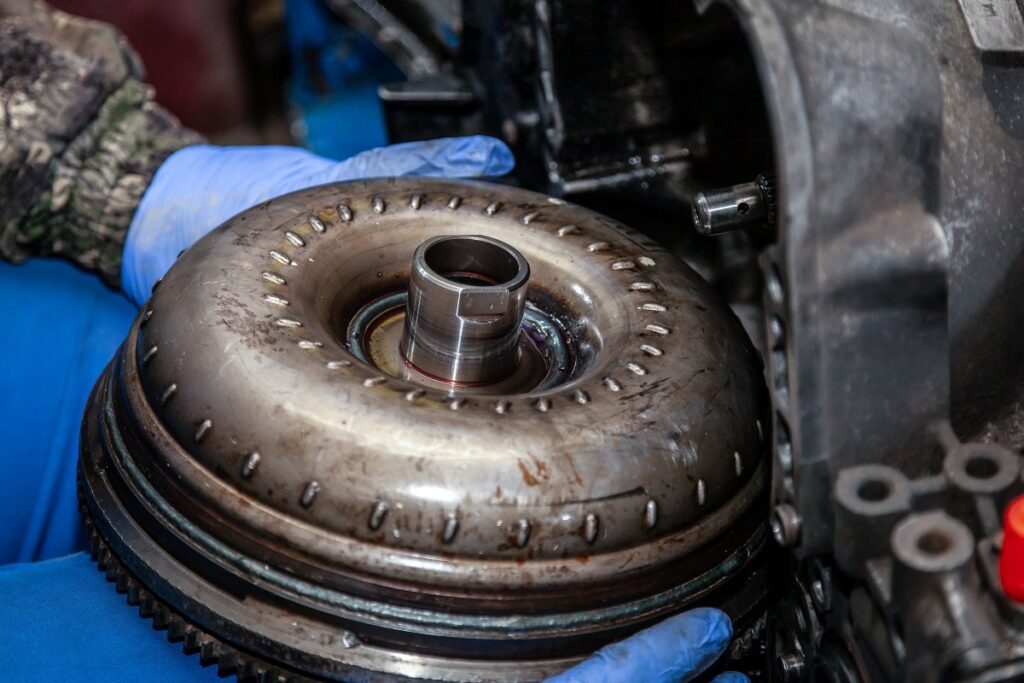
A torque converter is a vital component found in automatic transmissions. Its primary function is to transfer torque from the engine to the transmission, allowing your vehicle to shift gears without a clutch. It uses a complex arrangement of fluid dynamics and mechanical elements to transmit power and multiply torque, ensuring that your engine’s rotational energy is efficiently transferred to your wheels. It’s the magic behind seamless gear changes and effortless acceleration in automatic vehicles.
Symptoms of Torque Converter Problems
When it comes to torque converter problems, your vehicle might exhibit several symptoms that can act as warning signs. Paying attention to these indicators can help you identify potential issues and take appropriate action. Here are some common symptoms of torque converter problems:
Slipping
If you notice a sudden loss of power or a delay in acceleration, it could be a sign of a slipping torque converter. When the torque converter slips, your engine may rev higher than usual without a corresponding increase in speed. This can be frustrating and concerning, as it affects your vehicle’s ability to maintain its normal performance, especially when you need that extra power for tasks like overtaking or climbing steep hills.
A slipping torque converter can be caused by worn-out friction materials or internal seal leaks, indicating the need for a thorough inspection and possible replacement.
Shuddering or Vibrations
A faulty torque converter can cause your vehicle to experience shuddering or vibrations, particularly noticeable at low speeds or during the transition between gears. It may feel like driving over a rumble strip.
This shuddering sensation is often a result of a damaged or worn-out torque converter lock-up clutch or worn-out needle bearings. If left unaddressed, this issue can worsen over time and further damage the torque converter or other transmission components.
Overheating
A malfunctioning torque converter can lead to increased transmission fluid temperature, resulting in overheating. If you notice the temperature gauge rising or receive warnings on your dashboard about high transmission fluid temperature, it could signal torque converter problems.
Overheating can be caused by issues such as inadequate fluid flow, faulty solenoids, or a damaged internal seal within the torque converter. It’s crucial to address this symptom promptly to prevent further damage to the transmission.
Increased Fuel Consumption
A damaged torque converter can cause the engine to work harder, increasing fuel consumption. If you find yourself making more frequent trips to the gas station without any apparent reason, it could be related to torque converter issues.
The inefficiency caused by a faulty torque converter can result in poor power transfer and increased energy loss, leading to higher fuel consumption than normal. Resolving the torque converter problem can help restore your vehicle’s fuel efficiency.
Strange Noises
Unusual noises such as grinding, whining, or clunking sounds coming from the transmission area can indicate problems with the torque converter. These noises may occur when shifting gears or while the vehicle is in idle.
The sounds could be caused by a damaged torque converter stator, worn-out bearings, or other internal components that have become faulty. Ignoring these noises and continuing to drive with a malfunctioning torque converter can lead to more severe transmission issues and potential breakdowns.
Transmission Slippage
A failing torque converter can result in transmission slippage, where the transmission shifts in and out of gear unexpectedly. You may experience difficulty staying in a specific gear or notice erratic gear changes while driving.
This can be attributed to various torque converter problems, such as worn-out friction elements or damaged internal components. It’s crucial to address transmission slippage promptly to prevent further damage to the transmission and ensure the safe and smooth operation of your vehicle.
What Causes a Torque Converter to Fail?
A torque converter can fail due to various factors and issues. Here are some common causes of torque converter failure:
- Fluid Contamination: Contaminated transmission fluid can cause damage to the torque converter. Foreign particles, debris, or excessive heat can lead to fluid degradation, resulting in reduced lubrication and impaired operation of the torque converter.
- Overheating: Excessive heat is detrimental to the torque converter’s components. Continuous overheating can lead to seal damage, clutch material degradation, or warping of internal parts, causing the torque converter to fail.
- Internal Seal Leaks: Seals within the torque converter can develop leaks over time. These leaks can result in fluid loss or mixing with other components, leading to a drop in hydraulic pressure and inefficient torque converter operation.
- Worn Friction Elements: The friction elements inside the torque converter, such as the clutch plates or lock-up clutch, can wear out over time. This can result in slipping, reduced torque transfer, and decreased overall torque converter performance.
- Damaged or Worn Bearings: The needle bearings in the torque converter can become damaged or worn, causing excessive play and vibration. This can lead to erratic operation, noise, and ultimately, torque converter failure.
Torque Converter Replacement Cost
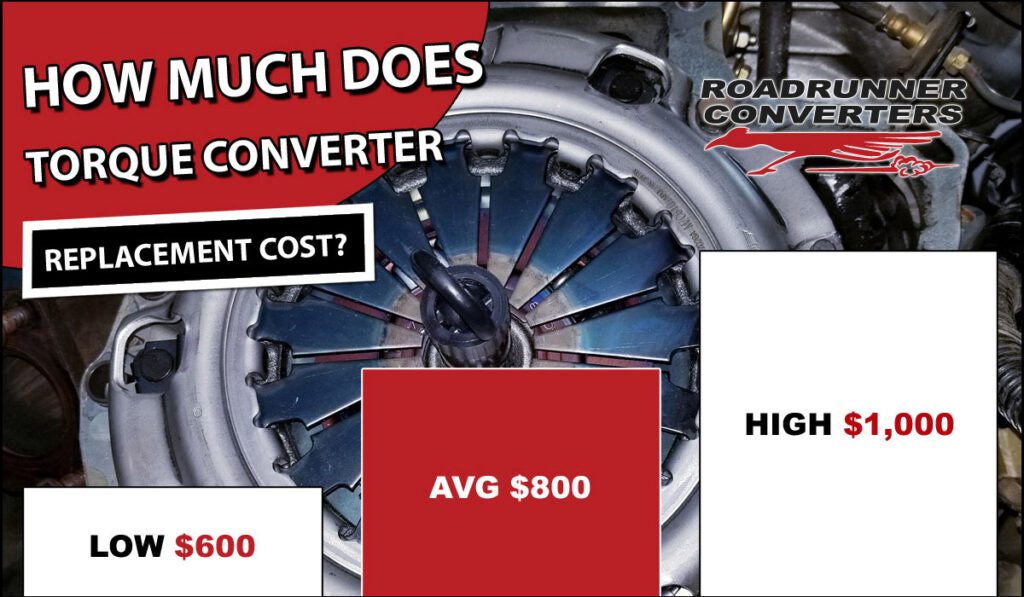
| Garage/Transmission Shop | DIY | |
| Minimum Cost Range | $550-$750 | $150-$300 |
| Maximum Cost Range | $950-$2,000+ | $350-$500 |
| Average Cost Range | $700-$850 | $250-$400 |
Parts Costs for Replacing Your Torque Converter
The torque converter itself and its associated parts are generally affordable in terms of replacement costs. The specific price can vary depending on the make and model of the vehicle. Typically, the torque converter falls within the range of $150 to $500.
For instance, if we take the example of a Ford Explorer, the torque converter can be obtained for under $150. However, for a Volvo XC90, the same component is priced higher, nearing $1,300.
It’s important to note that in addition to the torque converter, there is an extra cost to consider related to the transmission fluid. When undertaking torque converter replacement, it is often recommended to flush out the transmission system and change the fluid. This additional service incurs a separate charge by the shop if you opt for professional assistance, or it is an expense you need to account for if you choose to handle the work yourself.
Labor Costs for Replacing Your Torque Converter
The primary expense associated with torque converter replacement is the labor involved. Removing the transmission from the vehicle to perform the replacement is a labor-intensive process, typically taking around 5-10 hours to complete.
Labor costs for torque converter replacement usually range between $400 and $700, varying based on the specific vehicle and the location where you choose to have the work done. If you factor in the additional service of flushing the transmission system and replacing the fluid, you should expect to add approximately $125 to $250 to the overall cost.
It’s essential to consider both the cost of the torque converter itself and the labor expenses when estimating the total price for a torque converter replacement and any additional services recommended for the proper maintenance of the transmission system.
Example Costs to Replace a Torque Converter by Vehicle
| Vehicle Make/Model | Price Range |
|---|---|
| Acura MDX | $2,200 – $2,400 |
| Ford Edge | $950 – $1,100 |
| Ford Explorer | $750 – $900 |
| Ford F-150 | $1,200 – $1,400 |
| Ford Ranger | $750 – $900 |
| Honda Odyssey | $2,250 – $2,400 |
| Jeep Cherokee | $950 – $1,050 |
| Jeep Wrangler | $1,200 – $1,400 |
| Subaru Forester | $1,000 – $1,150 |
| Toyota Tundra | $800 – $950 |
Conclusion
In conclusion, torque converter replacement can be a necessary and worthwhile investment when faced with torque converter problems. It’s essential to recognize the symptoms of torque converter issues and address them promptly to avoid further damage to the transmission and ensure the smooth operation of your vehicle.
Ultimately, considering the significance of the torque converter in the proper functioning of the transmission, investing in a torque converter replacement, along with any necessary maintenance procedures, can help restore your vehicle’s performance, improve fuel efficiency, and ensure a reliable driving experience. Remember to consult with a qualified mechanic or transmission specialist to diagnose the issue accurately and determine the most suitable course of action for your specific vehicle.
